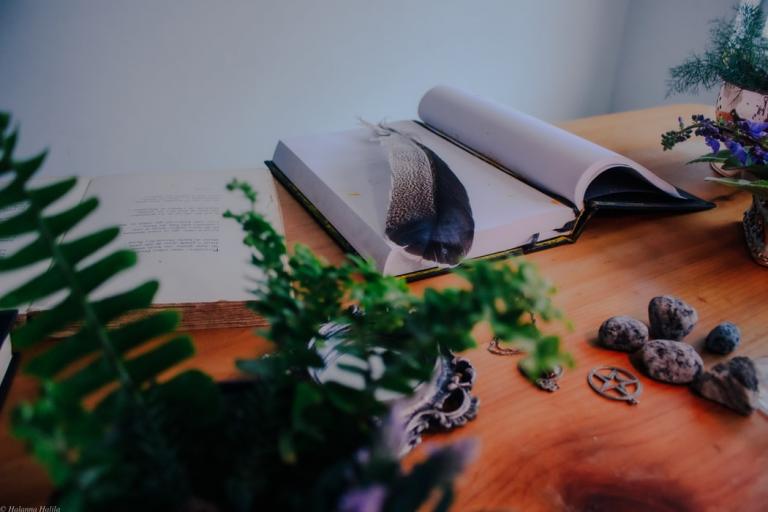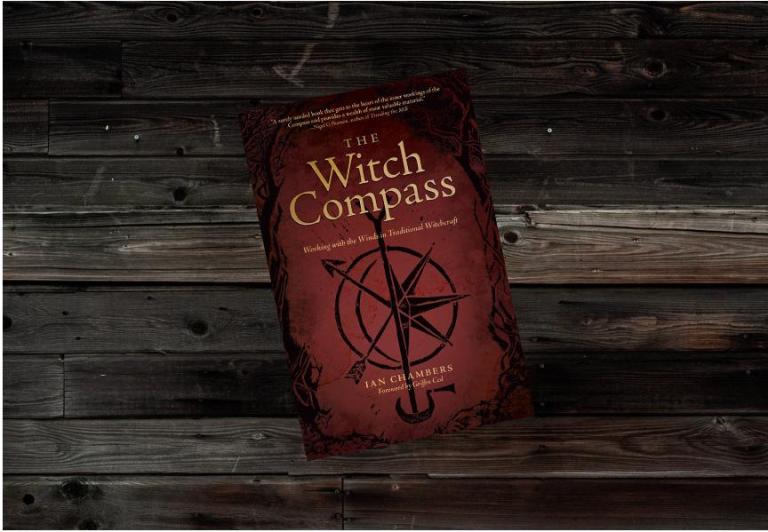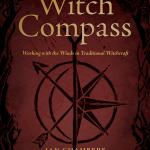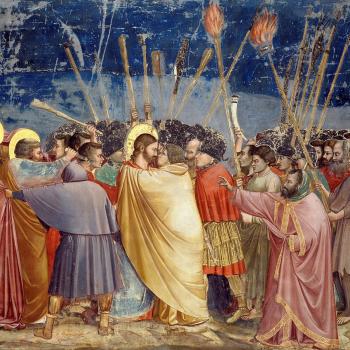
Throughout conversations, one of the most frequent things to emerge is a regrettable reason that some people are drawn to magic and the occult. One of the greatest, and unspoken, attractions to people drawn to magic is deferred responsibility; that is, the postponing of ownership in favour of wish fulfilment. In these circumstances, we are guilty of pinning our hopes for overcoming difficult life situations upon a desired outcome through magic, when we wish for a thing to resolve itself in our favour where it might otherwise be unlikely.
Rather than addressing the root cause of circumstances we would wish to change, all faith is placed in a magic which is frankly being asked more than it is often capable. Ultimately, when this faith returns an unsuccessful result, the blame is subsequently placed upon the magic, thus delaying the inevitability of culpability. Furthermore, there is a habit to expect magic to be a quick and easy fix, which in itself is folly. It is like expecting our finances to be improved by using lottery tickets as a system to manage them; it is careless and requires the overcoming of astronomical probability.
…Magic is hard work! It takes time, and skill, to employ effectively…
Whilst this by no means incorporates everybody who comes to the occult arts, it is a trend in the populace at large. Sometimes divination is best avoided when the querent simply won’t take any advice given, but would rather keep asking in the vain hope that the answer they most desire will eventually come with the next turn of the card, or the next, ad infinitum. Or else, some tenuous link is acknowledged to affirm far more than it legitimately is able.
Thats not to say that there aren’t beneficial and affective magics we can use. Unfortunately, there is no quick fix or magic cure for the difficult situations that coalesce in our lives. Human nature, and the experience of being human, is not so easily manipulated, especially when your financial troubles would be better approached with healthy spending habits, and saving that money acquired.

When we put our reliance upon outside agency, magic or otherwise, we defer all of the responsibility and take an often unhealthy avoidance of circumstances which we must, eventually, face up to.
Magic is hard work! It takes time, and skill, to employ effectively. In the days of lodge magic, many groups would require a period of work between three and nine months, during which time diligent recording of works performed, factors involved and results perceived was essential.
The lay person and popular witchcraft seeker, however, should not be disheartened or put off. Indeed, skilled readers, for example, are often adept at providing supportive words and proofs in their work, but the responsibility for how we choose to take a reading and interpret it within our lives is entirely our own. There are no quick fixes in this world, and magic will sometimes only paper over issues that are not being faced up to. Taking responsibility is key – it is the first step to owning your magic, working it effectively and appropriately.
People often say magic is an art and a science. This implies, to me at least, that there is an intuitive, inspirational part, and a technical, systematic part. This latter involves working with probability and rendering circumstances more likely, taking responsibility for enhancing the expectation of a successful result. To paraphrase Crowley, do certain things and certain things happen. The methods for working this are myriad, and as simple or complex as life itself.
An example of working with probability in aiding the magic to succeed can be found in the classic example of the spell or prayer for a lottery win. Buying a ticket in the first place already greatly improves the chance of winning. No amount of magic is going to improve chances of success when a lottery ticket is never made available in the first place. We have to make ourselves available to a favourable outcome, ensuring that we take every opportunity to create the optimum environment that is conducive to positive results. It’s not impossible that you could magic a lottery win, regardless of never buying a ticket. However, it is extremely less likely to be as effective as a magician who brings all their powers to bear, reducing the variables and collapsing the number of potential results until the probability factor is guided toward the most desired result.
There are many different ways to effect successful magic, from complex ceremonial ritual, lodge style Golden Dawn or the down and dirty witchcraft, Hoodo and traditional methods that work with the dirt and bones. What remains in all instances, though, is that we are each responsible for the results and magic employed, accepting that only we are accountable for the end result. Ultimately, how we apply and absorb the magic into our lives is ours and we must own it, and its failings together with successes, and not expect our underlying issues, or difficulties, to be projected into the sphere of the occult. Magic isn’t to blame for misfortune that befalls us, nor can it wistfully gloss any and all situations for which we eventually must accept and take responsibility for. Wishing away the bad parts of life doesn’t diminish or remove them indefinitely, and accepting our place is far better in the long run.

The Witch Compass: Working with the Winds in Traditional Witchcraft, is published by Llewellyn and due for release summer 2022. It is available to preorder from Amazon (Amazon.co.uk), all good book sellers and your independent bookstore (please support these important resources in our community).
“This book invites you to explore the Witch Compass, an important ritual tool at the heart of traditional witchcraft practice. Traditional Witch Ian Chambers takes you through the origins, history and uses of the compass and other magical circles, comparing their many forms and how they work.”
“A scholarly, inspiring, and eminently informative work. I give it my highest recommendation.”—Lon Milo DuQuette, author of The Magic of Aleister Crowley
“…This is a sorely needed book that gets to the heart of the inner workings of the Compass and provides a wealth of most valuable material for both the beginner and more experienced practitioner alike. I congratulate Ian on producing an approachable and understandable book which will add greatly to the sum of available knowledge on a sometimes obscure and difficult subject”—Nigel G Pearson, author of Treading the Mill
“With this invaluable book, the aspirant unto traditional Craft and the seasoned practitioner alike are carefully guided through the workings of the Compass as the map, via which the Crafter may traverse magical realities, encounter spiritual presences, and commune with ultimate Truth.”—Gemma Gary, author of Traditional Witchcraft


















